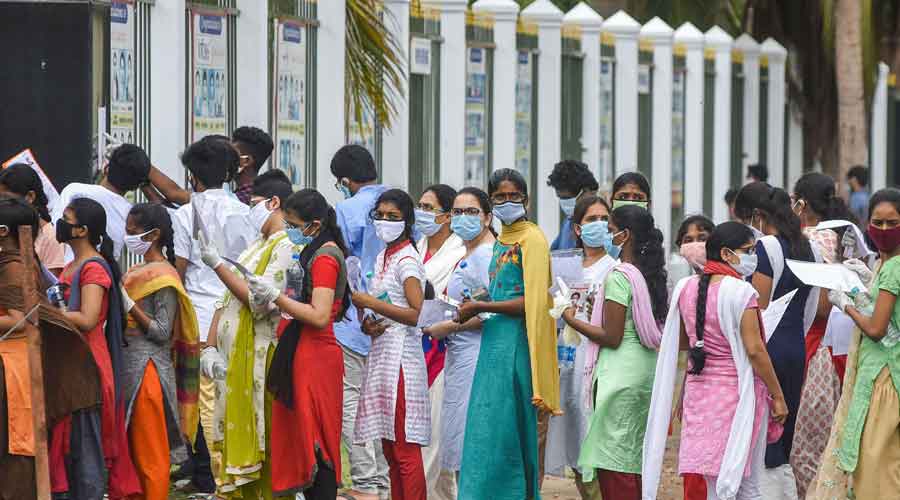Education is knowledge. But does the student alone profit from education? A report by an expert committee set up by the Tamil Nadu government to investigate the impact of the National Eligibility cum Entrance Test has raised this very question — the government has now passed a bill to exempt the state from this entrance test for medical courses. According to its findings, 99 per cent of students who appeared for the exam in 2019-20 had received prior training. This not only points to the massive proliferation of coaching centres — over 400 firms devoted exclusively to NEET training have mushroomed in Tamil Nadu alone — but also exposes the staggering profiteering involved — the centres conduct business worth around Rs 5,750 crore. This ancillary coaching industry is not limited to the southern state; around 1.65 lakh ‘migrant’ students register in the residential coaching centres of Kota every year while many, who cannot afford their exorbitant fees, get left behind. Even for those who can bear the expenses, balanced schooling takes a back seat, reducing education to merely an instrumental means of getting admitted to an institution of choice. Familial and institutional pressure puts young minds under further stress — nearly 20 student suicides were reported in Kota almost every year between 2015 and 2018, while Andhra Pradesh and Telangana witnessed around 50 cases in the span of two months in 2017.
Education in India is marred by deep divisions and contradictions. Meritocracy is revered yet there is no respite for students who are herded into the race to excel at any cost. The impersonal, automated evaluation processes of competitive exams leads to a double exclusion. Following the implementation of NEET, in the last four years, there has been an average decline of 11.2 per cent share of medical admission among the ‘crucial’ social categories in Tamil Nadu. Its implications are not confined to the education sector; the fall in the number of rural students joining medical colleges is expected to translate into a severe dearth of medical practitioners in rural areas. This, along with the government’s emphasis on vocational training through the new National Education Policy, is suggestive of a thrust on a functional approach to education that is not conducive to the gathering of knowledge that should be the principal goal of learning.










